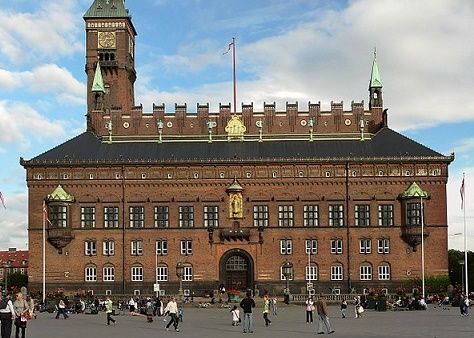This year, almost 200,000 people from other EU countries – plus Iceland and Norway – have the right to vote in the municipal and regional elections, but experience shows that only a few of them will do so.
READ ALSO: Foreigners’ votes could jeopardise local election result, complains right-wing party
Since the local elections of 2013, the number of EU citizens in Denmark able to vote has risen by 32 percent. However, there is a big difference in the way they are distributed from one municipality to another, a new Momentum analysis has discovered.
The survey shows the municipalities that have the highest proportion of EU citizens amongst their potential voters are Copenhagen with 9.3 percent, Frederiksberg with 8 percent, Ishøj and Gentofte with 7.1 percent each, and Horsens with 6.7 percent.
If the figures for the last election are anything to go by, it doesn’t seem as if the increased proportion of EU citizens will have much effect on the outcome.
Nordics on top
When it comes to which nationalities are most likely to vote, Swedes top the list with 51 percent, followed by the Dutch at 49 percent and Norwegians at 45 percent. Last time round, only 15 percent of Poles voted and 14 percent of Romanians. At the bottom of the list, Lithuanians only make up 12 percent of the voters.
Professor Kasper Møller Hansen, a researcher at Copenhagen University, points out that on a national basis, EU citizens only make up 4.4 percent of the total enfranchised population, but they might have some influence in municipalities where there are high concentrations of foreigners.
“All things being equal, it could drag the figures for participation in the election down when you add a group to the pot that have a participation percent of 14 percent when the average is over 70 percent,” said Møller Hansen.
Sometimes more engaged
On the other hand, the immigrants who do vote are often more engaged than Danish voters, who are more set in their ways and loyal to a particular candidate or party.
“What we often see amongst the new voters is that they have more curiosity. They are more aware of the campaign because they don’t have a long tradition of voting for the same party. They see where they have ended up and what the issues in the municipality are, and they are more inclined to explore the political possibilities.”
Regarding why some groups don’t seem interested in voting, Møller Hansen feels that it can have a lot to do with the fact that certain groups are here to work and do not intend to remain in Denmark permanently. A lot keep their focus – politically, culturally and language-wise – on their homeland.
“A lot of them don’t speak Danish, but they experience a situation where a polling card in Danish comes through the letterbox and they then decide not to use it,” adds Møller Hansen.
Things are being done
Some municipalities are aware of this and have organised meetings in English or provided material on voting in English.
The Danish council for ethnic minorities has produced a pamphlet in nine languages entitled ‘This is your election – a guide to participating in democracy in Denmark’. It hopes that the pamphlet will contribute to changing things.
“It’s a civic duty in a democracy to vote, as well as being a way to make your influence felt,” explained Yasar Cakmak from the organisation.
“If you don’t use the right, you will not be taken into consideration when policies are being formulated. If a politician discovers that a particular group is not interested in politics and doesn’t vote, he might think that he doesn’t need to do anything that will appeal to them or safeguard their interests.”















